Apu, A Racist Caricature Of South Asians, Faces Reckoning In New Documentary
South Asian–American celebrities like Aziz Ansari, Hasan Minhaj, and Mindy Kaling have achieved remarkable success in recent years. They’ve played multidimensional characters, created their own shows and helped the nation understand all the struggles and joys of the immigrant experience.
But there’s one character who is still hopelessly stuck in the past, when it was acceptable for Indians to be mocked and stereotyped on national television: Apu Nahasapeemapetilon.
For nearly 30 years, Apu has been a fixture in the fictional town of Springfield, the home of “The Simpsons.” The character is still working at the town’s Kwik-E-Mart. He’s still known for his accent and his ridiculous catchphrase. He’s still being voiced by Hank Azaria, a white voice actor.
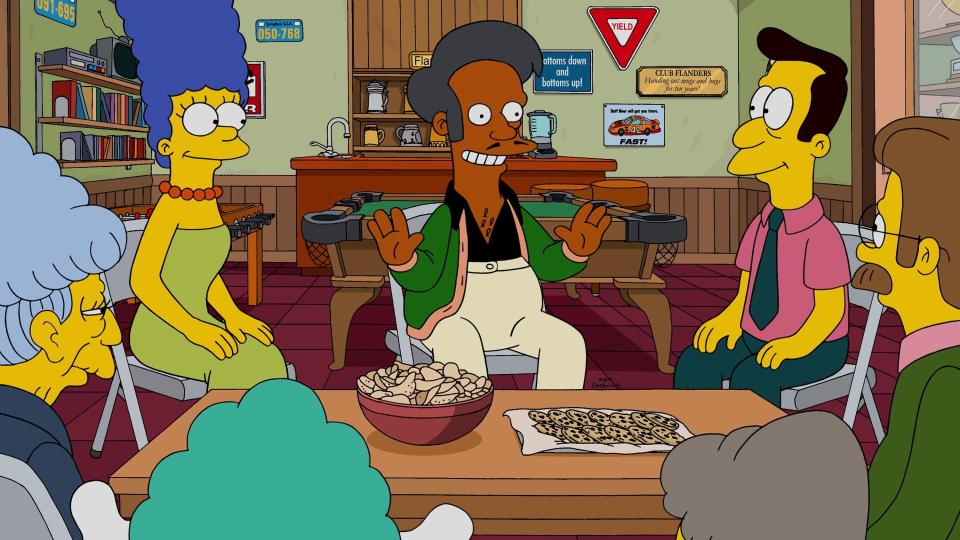
Hari Kondabolu, a Brooklyn-based comedian, believes the time has come for Apu ― and more important, the forces that created the character ― to face a reckoning.
He takes on these big issues in his new documentary, “The Problem With Apu.”
In the film, Kondabolu interviews many of today’s biggest South Asian–American celebrities, including Aziz Ansari, Kal Penn, Aasif Mandvi, Hasan Minhaj, Utkarsh Ambudkar and Aparna Nancherla. He asks them about their own relationships with Apu, and the difficulties they’ve had in getting non-stereotypical roles.
Kondabolu has had a complicated relationship with Apu himself. He’s a longtime fan of “The Simpsons,” and knows that Apu is a beloved character. But for years, this exaggerated caricature was one of the only representations that South Asians had of themselves in pop culture.
“These images have impact. And it’s part of a larger legacy,” Kondabolu told HuffPost, linking Apu to other instances of white actors using blackface or brownface to stereotype people of color. “This has been there since the beginning, the idea of wearing out people and describing people in these one-dimensional ways. It gives you a sense of power over them. You’re better than they are, you’re smarter than they are. You’re the one who fits and they don’t.”

“Discrimination doesn’t magically show up. You have to be taught, you have to be trained, you have to be conditioned. I think there’s a conditioning that happens because of media,” he said.
Kondabolu also attempts to speak to the people behind “The Simpsons” for their thoughts on Apu for the film. Azaria, the voice of Apu, notably refuses to speak with the comedian.
Ultimately though, Kondabolu said that the heart of the film is not about trying to publicly shame Azaria for giving Apu an accent, or even to get Apu off the air. For this comedian, it’s about starting a discussion about the need for diversity ― both on-screen and in the writers room.
“If my choices are spending my energy focusing on getting Apu off the air, or writing and creating something that is a multidimensional character that reflects our actual upbringings, our families, our lives, I’d rather do the latter,” Kondabolu said. “That’s what the job of a creative is. This is not about punishment, this isn’t about like things getting fixed. It’s about where do we go from here.”
HuffPost spoke with Kondabolu about the goals behind his documentary and his thoughts on representation in the media today.
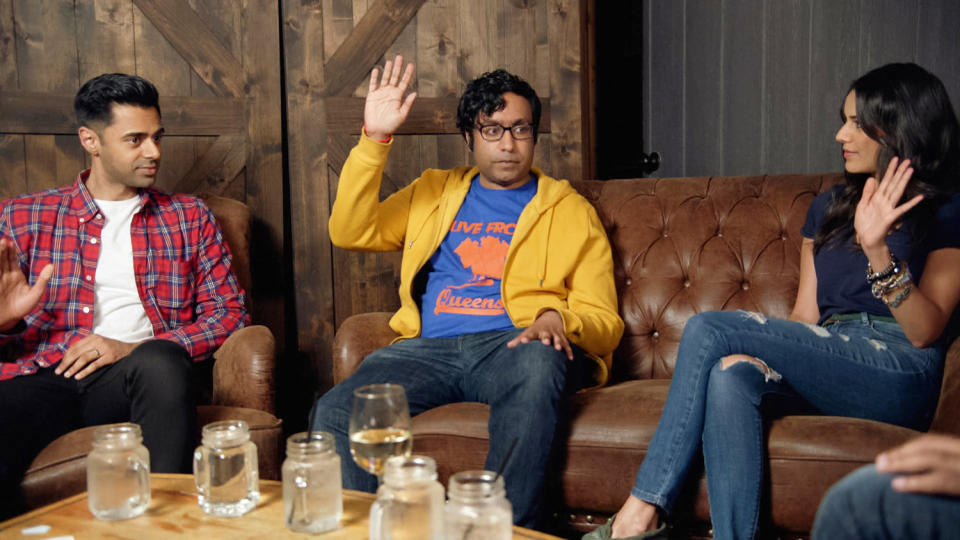
What is it like for you, viscerally, when you hear and see Apu?
It bothers me. Certainly, I was very aware that the way Apu is represented is how my parents are seen to some degree. I was embarrassed about their accents, I was embarrassed to have friends come over, I was embarrassed when they spoke. It’s embarrassing to me now as an adult, that I actually felt that way about my own parents, who gave me everything, who themselves had to sacrifice much of their own joy to give me a great life. It’s upsetting to think that the media is able to influence me to feel that. That’s the deeper stuff you don’t realize initially. It kind of burrows into who you are and you have all these insecurities that should not be there.
Why do you think most of our parents’ generation didn’t speak up as loudly about how they’re represented in the media?
Because you have to keep your head down and work. The risk is, if I make noise, I get fired. If I make noise, that could cost me or my family in some way. Or, I just don’t have time. There are more important things, rightfully. I don’t question that. I understand that. My mom said [representation] didn’t bother her as much until she realized her kids were being made fun of and then she realized these things have impact. These things matter. For our parents, their whole thing is just work, get through it, it doesn’t matter. For us, we have a rightful sense of entitlement. This is where I grew up. This is my home. This is my space. How come I’m not being seen as equal?
Love HuffPost? Become a founding member of HuffPost Plus today.

Do you think this film would have been possible 10 years ago? What has changed about our society during that time?
Nobody would have funded this 10 years ago. I really do believe that. I think the discussion of representation was big enough, especially with Asian-Americans. I also think there wasn’t a critical mass of South Asian actors and media figures and government officials in a position where people would want to hear from them. Ten years ago, we’re talking about 2007. Aziz [Ansari] wasn’t who Aziz is now. There’s a lot of people who don’t have the same pull. Mindy was somebody on “The Office.” That’s different than somebody who has their own show and who is influential and writes books. As our influence as South Asians has increased, that leads to more people wanting to know who we are and what we think and how we feel. Ten years ago, I don’t think it wouldn’t have been possible. Not to say it wasn’t relevant. Ten years ago, I would have said it was even more relevant. But this is the opening and the time period we got.

Could you chart a trajectory for how Apu has become less acceptable? Are there any key moments in our cultural history that you look back to, as reference points?
Certainly, it’s the creation of more complicated characters. Kal Penn in “Harold and Kumar.” I remember that movie being seen as this revolutionary movie when it came out. It’s a stoner film, but at the time, the thing that was exciting was, “Oh my God. He’s Indian-American. He’s not an Indian caricature.” Kal had played that Van Wilder character Taj Mahal and it was just this one-dimensional character and that’s what we had seen him in. And all of a sudden it’s like, holy crap, he gets to play a real person. This is a person more like us.
And also the character was a bit of a jerk. He actually has some complication. It’s sad that’s this is what’s revolutionary ― “Oh, look it’s brown people and they sound like us and they smoke weed.” But at the time, it was shocking because we weren’t allowed to have any voice at all. That was a huge moment. Aasif Mandvi being on “The Daily Show.” That was huge. This was the biggest show on TV at the moment and Aasif finally made it. A lot of things like that. People who got to break through and talk as human beings. That’s a big deal.
What would you tell Hank Azaria if you could talk to him now?
This isn’t really about him. We used the Hank stuff as a narrative device. It gives the film a focal point to get through it. That’s not what the film is about. The film is about the issues, it’s about the conversation, the legacy. I think in our culture we like flogging people, we like public shame. We like to destroy people. But then what? That’s not productive. I don’t care about the person who did this particular work, I care about the system. What is the system? I think everybody’s like, “Will you destroy him?” Honestly, who cares? A lot of people don’t even watch “The Simpsons” anymore or know who Apu is. I care less about him. I care more about the ideas.
You talk about patanking in the film. [Patanking, a word coined by the actress Sakina Jaffrey, is a word used by South Asian actors to describe an accent that directors may ask them to put on. It’s a disembodied caricature of an Indian accent that sounds authentic to a non-Indian ear.] How do you feel about Indian American actors patanking? When do you think that’s OK?
I think I was a lot harsher about those things when I was younger. But now, I understand. You want to be a working actor and you believe that eventually, you’ll get work that justifies what you’re doing. And at least actors of South Asian heritage can give a character dignity that’s undignified. Because the character is going to exist. If we don’t play it, they’ll get a white guy to play it. I understand that and I sympathize.
I hate the fact it was necessary at times. I feel fortunate that I’m a comedian and not an actor primarily. Actors are stuck. They get someone else’s writing and they make choices. Like, “Do I want to take this or not, do I want this break or not?” For comedians, it’s like, if I don’t want to do a certain part, I’ll just tell jokes like I normally do. I have a degree of control and freedom that they don’t have. I’m really fortunate in that regard.

On one hand, it’s amazing when South Asian actors are cast in roles that don’t explicitly have to do with their race. But it’s also important to have South Asian American actors on the screen reflecting the community’s experiences ― talking about all the challenges and victories that come with being South Asian American. How do you find a balance between those two goals?
The ideal situation is a multidimensional character. When I walk around, I don’t think to myself, “I’m Indian everybody, look, I’m Indian!” If it comes up, it comes up. But if it doesn’t, I’m just functioning like a human being. It’s other people that make me feel my skin often. Being in a balance means you’re not embarrassed and you’re not hiding who you are. At the same time, who you are is much broader than certain racial or cultural characteristics and identities.
As a content creator, as the person who creates this stuff, as a person who’s interested in writing and producing part of it, I hope for multidimensional characters. And I hope that there’s more brown people, people of color, women, members of the LGBTQ community in writers’ rooms, which are generally white-male-dominated. That leads to terrible, inconsistent portrayals. It’s cool that you’re my white ally, but how about instead of speaking for me, get some of us hired on. Because I feel like that’s the bigger problem. The actors are the people who get the scraps at the end. The actual creation of the stuff, that doesn’t happen anywhere near them.
This interview has been edited for clarity and length.
“The Problem With Apu” premieres Sunday, Nov. 19, at 10 p.m. ET on truTV.
Also on HuffPost
Anna May Wong

In spite of her personal success, Wong openly complained about the lack of quality roles for Asians in Hollywood.
"I was so tired of the parts I had to play," she once told journalist Doris Mackie. "Why is it that the screen Chinese is always the villain? And so crude a villain -- murderous, treacherous, a snake in the grass."
Sessue Hayakawa

Though his heyday was the silent era, Hayakawa received an Oscar nomination for his role as the camp commander in the 1957 epic "The Bridge on the River Kwai."
James Shigeta
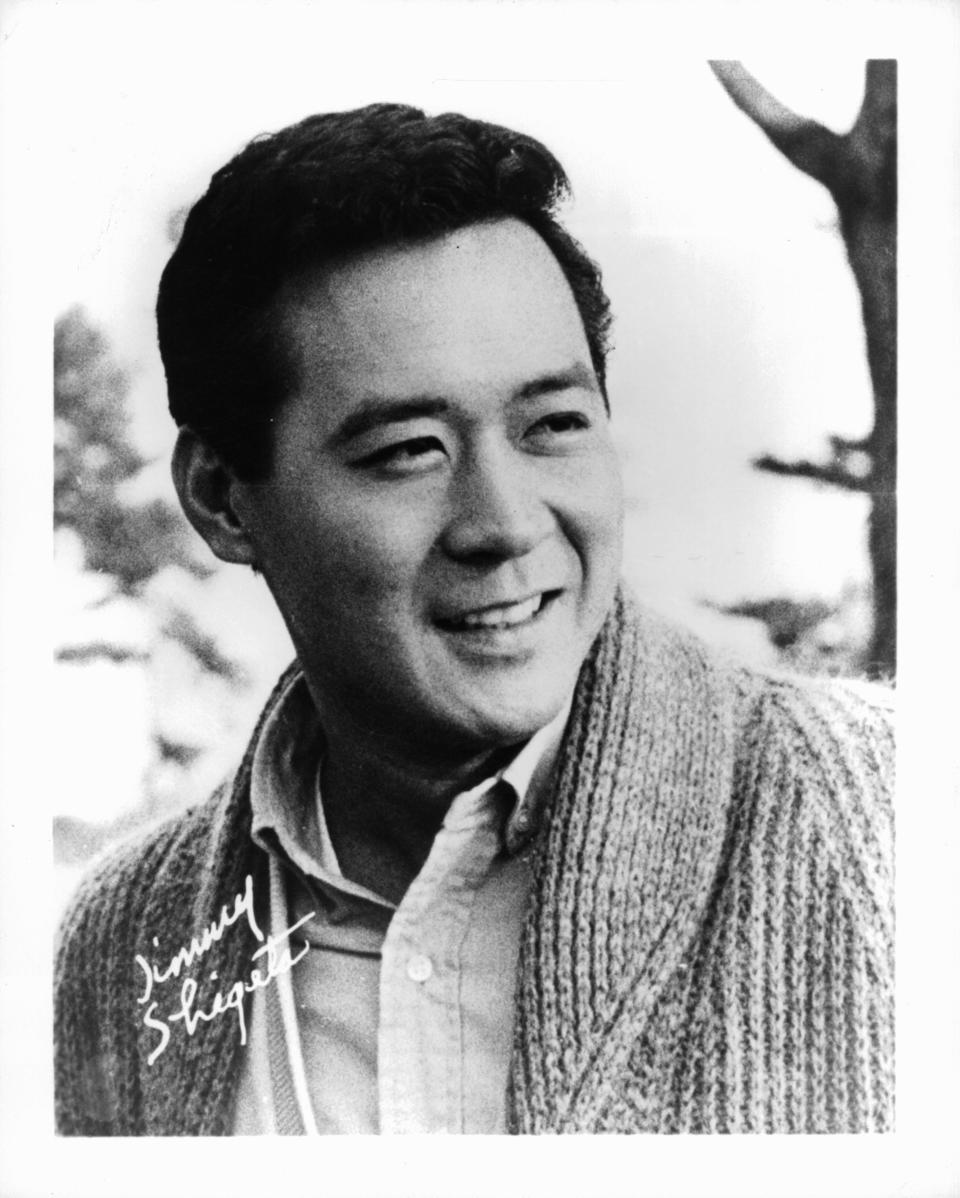
In an interview with the San Jose Mercury News in 2006, Shigeta said things were slightly better for Asian actors in Hollywood in the wake of "Flower Drum Song."
"Finally, they started portraying the Asian American as something other than the poor man in a menial job, as a doctor or attorney," he said.
Miyoshi Umeki
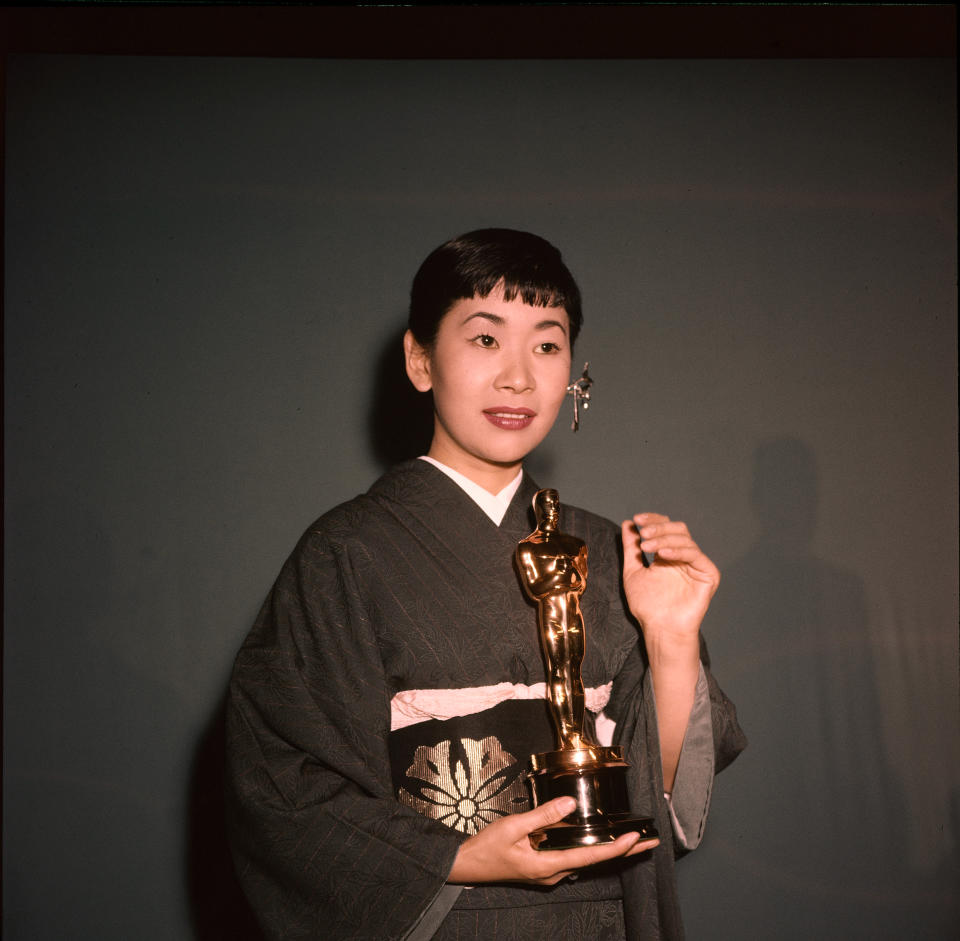
Not much has changed since then, unfortunately. As of 2017, Umeki is the only Asian woman to win an Academy Award for acting.
Merle Oberon
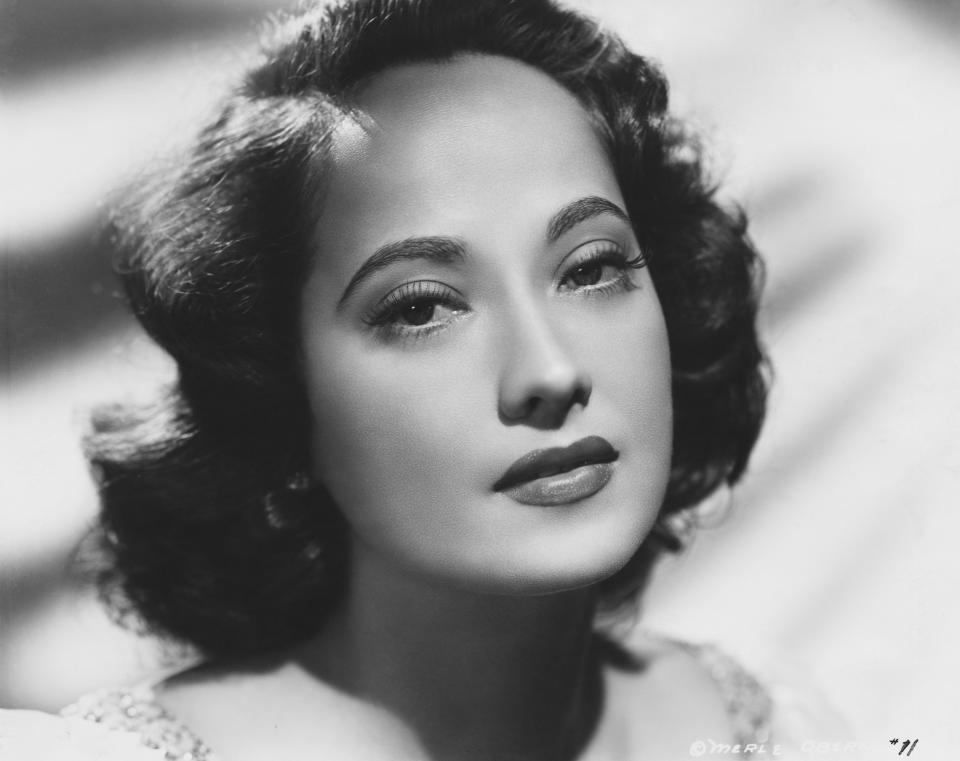
"The studio reconstructed her history and she had to live that life story and keep living that life story," according to Marée Delofski, the director of a 2002 documentary exploring Oberon's life titled "The Trouble With Merle."
Keye Luke
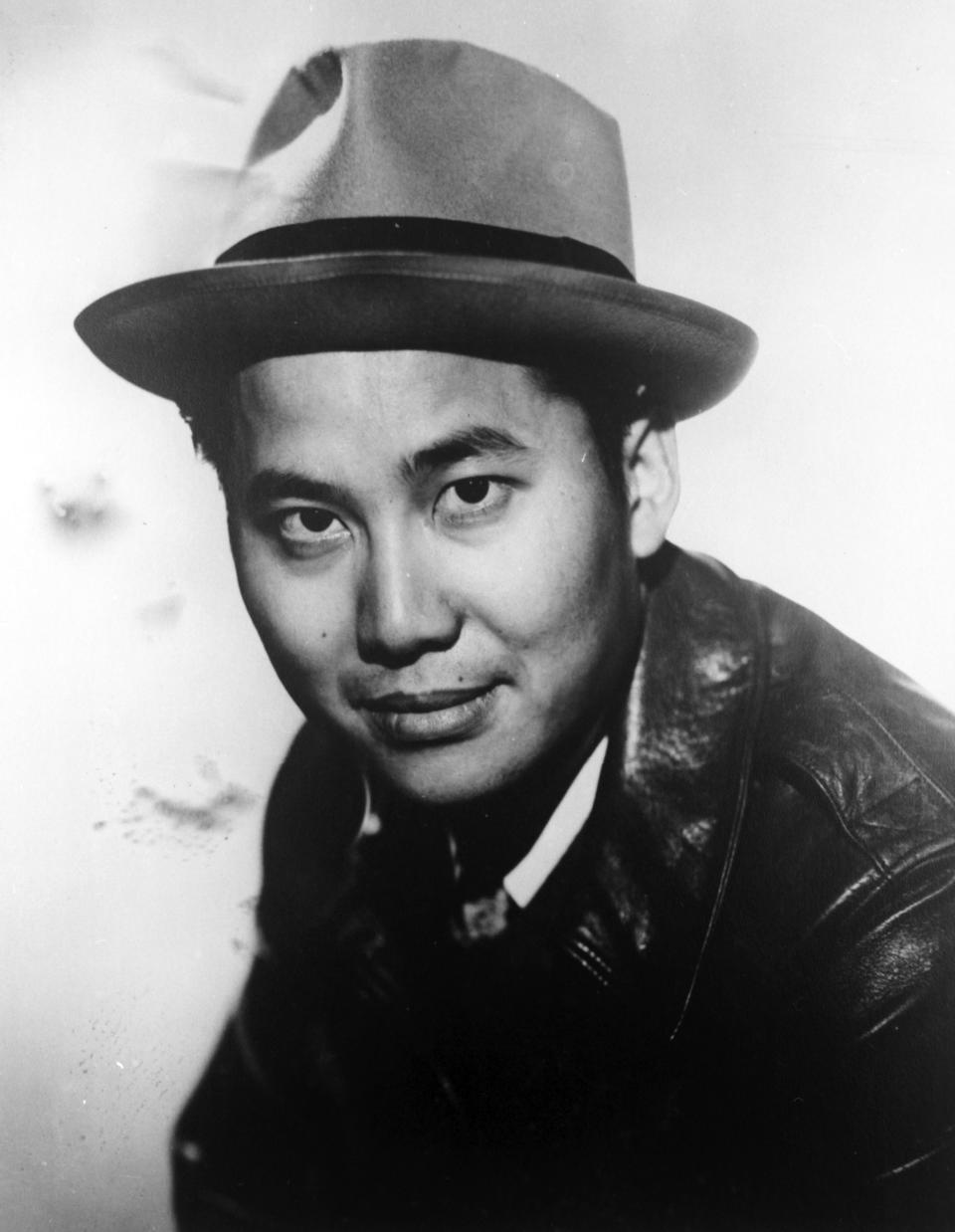
His personal favorite role was that of Master Po, David Carradine's mentor in "Kung Fu," a martial arts Western drama television series that ran in the '70s.
"I was giving the actual sayings of great Chinese philosophers like Confucius for dialogue," he said, in 1985. "It worked for me on every level."
Li Li-Hua

Nancy Kwan

"It was about time to cast Asians in Asian roles," Kwan told told the Los Angeles Times of the landmark musical. "It gave work to a lot of Asians, and it felt so good being in a film like that."
Bruce Lee
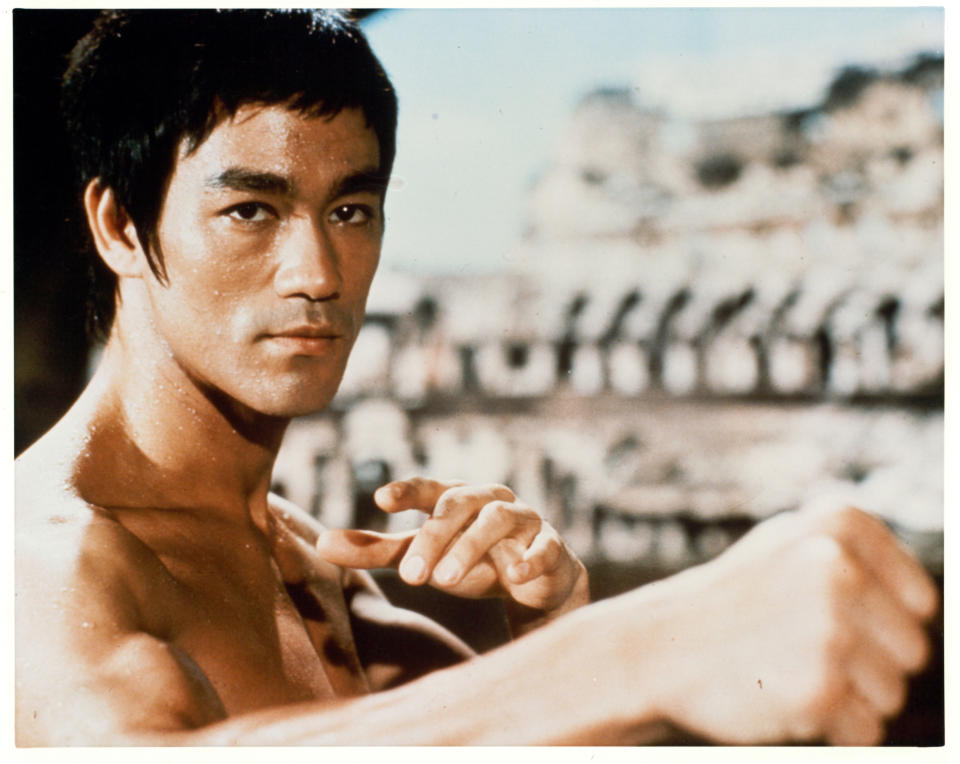
The Asian action hero only starred in five feature films as an adult before his death in 1973, but that's all it took for him to shatter the conception of Asian American masculinity as "weak."
"Before Lee's time, Asian men had been largely depicted as emasculated and childlike -- coolies, domestics, etc. -- in American popular culture," Hye Seung Chung, an associate professor of film and media studies at Colorado State University, told ABC News in 2005. "Lee proved that the image of the Asian man can be tough, strong and sexy."
This article originally appeared on HuffPost.

